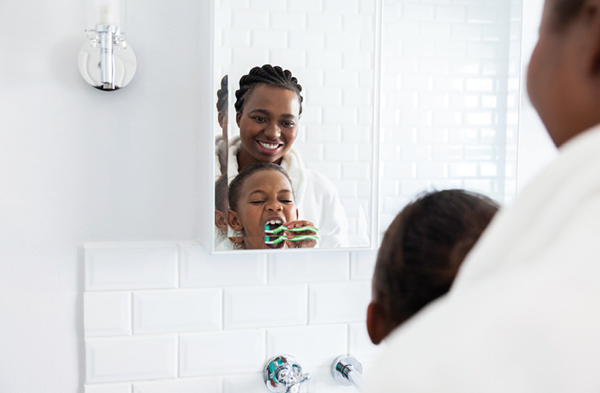Women's Health Rumors Busted

We've heard more than a few things in our clinics and in the press that perpetuate health myths and rumors. We took four of them to OHSU experts and asked them for the truth. This month we're sharing what we learned. Let us know what other rumors you've heard that need confirmed, or busted!
MYTH: Period pain is just part of being a woman.
Periods that are painful enough to impact your daily life and functioning aren't normal. There are a variety of possible causes, from endometriosis to pelvic inflammatory disease. No matter what the cause, there are treatments to help.
"If your periods are so painful that you have to stay home or miss out on usual sports activities, or you're planning your vacation around your period, it doesn't matter what the cause is, it should be addressed," says Amanda Ecker, M.D., Ob-Gyn at the OHSU Center for Women's Health.
MYTH: Giving birth in water is more beneficial than just laboring there.
Water birth is a wonderful birth option, but it isn't feasible for many women for a variety of reasons. However, many women who can't give birth in water can still spend all or part of their labor there.
And the good news is that you can experience many of the benefits of water labor, whether or not your birth occurs there.
"Water immersion for pain management is a great tool in the labor toolbox," says Michele Megregian, certified nurse-midwife at the OHSU Center for Women's Health. "Water immersion and water birth are associated with increased maternal satisfaction, decreased perineal lacerations, and decreased interventions."
MYTH: "Well-woman visit" is just a new name for the annual Pap smear.
Actually, your annual well-woman visit may not include a Pap smear or pelvic exam at all!
Research has shown that routine screening pelvic exams are unnecessary for most women. A pap smear, the test that screens for cervical cancer, is recommended for average risk women 21-30 every three years, and for women over 30 who are also tested for HPV, every five years. "Unless you're having symptoms, like sores, dryness, irritation, or discharge, you may need a pelvic exam even less often," says Amy Cantor, M.D., M.P.H., women's primary care provider at the OHSU Center for Women's Health.
Instead, when you come in for an annual well-woman visit, expect a robust conversation with your provider about your health status, and screenings for cancer, depression, diabetes, or other conditions tailored to your age and personal risk factors.
MYTH: Successful, healthy women have achieved work-life balance.
When we hosted a panel discussion among OHSU's women leaders, they quickly put this myth to rest. Elena Andresen, Ph.D., talked about her arrangement with her partner: "I'm the breadwinner and my husband is the house spouse. He keeps our life together. You need both things, but I won't call it balance. I know the times I've worked seven days a week and the amount I travel would put a strain on a normal American partnership and family."
Constance Tucker, M.A., Ph.D., OHSU's Vice-Provost for Educational Improvement and Innovation, also rejects the idea of balance: "I don't call it balance, I call it wholeness. There are times when [work] life takes more priority, but there are other times when it's minimized."
Ultimately, life is too unpredictable for balance, and trying to ensure our lives include a steady balance of work and home can cause more guilt than pleasure.